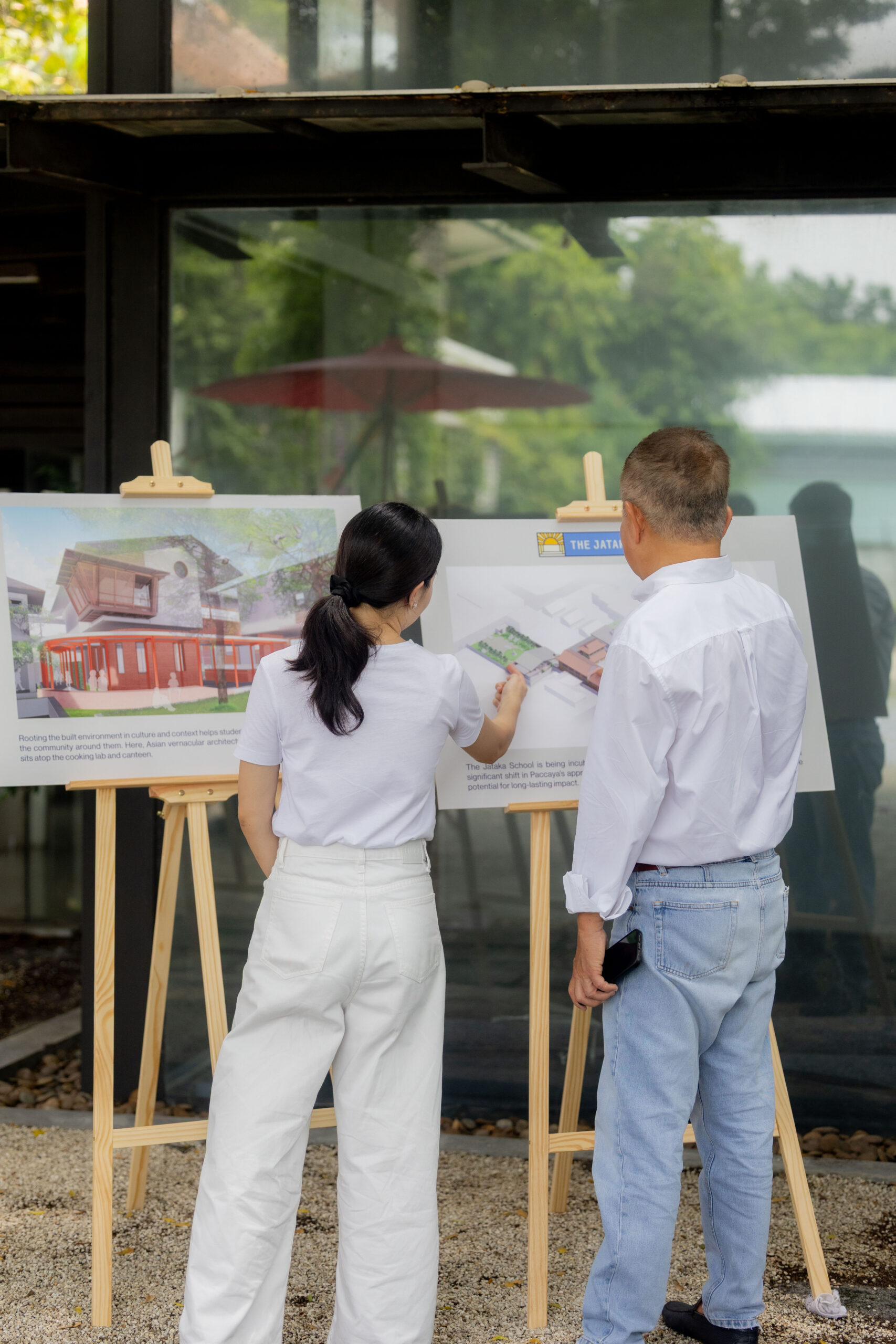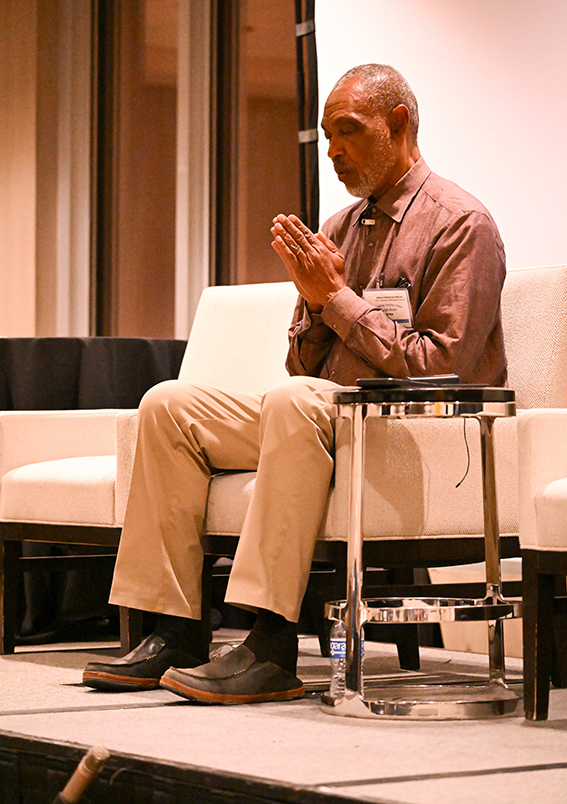
As Levi Moisés Alves was meditating one day in retreat, an idea began to form. A longtime student of Buddhism, the Brazilian had a background in music, social work, and climate justice. What if he could integrate all these with the dharma?
Levi had been part of a global movement and NGO called Earth Guardians since 2013, and in 2015, had founded a microenterprise called the School of Guardians to offer structured courses and workshops in the areas of arts and ecology. As he became more involved with the dharma he reviewed some priorities and objectives, and felt that a purely socio-environmental approach was no longer sufficient.
With a Khyentse Foundation Ashoka Grant in 2021, the School of Guardians was fully transformed into Bhumisparsha School in January 2022. Inspired by Dzongsar Khyentse Rinpoche’s teachings on the historical Buddha Shakyamuni, Levi chose the Sanskrit name “Bhumisparsha” (the “earth-touching” gesture performed by Shakyamuni when he attained enlightenment) with the intention to weave the dharma into the school’s activities at different levels and at the same time, to “touch” and care for the earth.*
“We believe that the mere existence of such a place, with open doors and the support of part of the community, is already a significant impact to be observed in a locality like ours,” says Levi.
Bhumisparsha School is located in Águas da Prata, a small Brazilian municipality in the state of São Paulo that is entirely dependent on its fragile ecosystem. The premises include a rehearsal and recording studio, classrooms, a library, a meditation room, and dormitories, as well as a meditation garden and seedling nursery outside.
The school is free of charge and offers extracurricular courses and workshops mostly to young people living locally, many of whom are prone to depression, anxiety, and chemical dependency brought about by a lack of opportunities. Effective care for mental health is one of the biggest deficiencies in the region. The courses and workshops aim to provide practical means for this audience to engage in activities related to both the environment and the arts, with some also offering scholarships. Activities are held both in person and online.
As well as community activities the school offers an Artistic Residency, encompassing the internal activities of residents and individuals involved in organizing initiatives and so on. Their long-term wish is to expand the residency to accommodate experienced dharma practitioners from all parts of the world.

The 7k Project
A major environmental initiative that was integrated into Bhumisparsha School is the 7k Project, whose original aim was to recover areas of degraded forest by planting 7,000 native trees by the end of 2021, as well as to monitor the area’s water, flora, and fauna. The project has now shifted focus to planting seed bombs (clay balls filled with dozens of seeds from native trees), as this is considered more effective in reforesting areas like the one in question. Over 4,000 seed bombs have been produced to date.
Profound dharmic symbols such as the tree are taken as a meditative path. “We handle our seeds by seeing the forest they are, just as our teachers see the Buddha that each of us already is,” says Levi. “For many people, holding a forest in the palm of their hand has been truly profound. This kind of approach provides us with space to contemplate themes like cause and effect, karma and merit, impermanence, non-self, and Buddha nature.”
Creative Output
Some members of the school are studying the English text of the Gandavyuha Sutra, which served as inspiration for a book released in September 2023—a cyberpunk science fiction work in graphic format titled CYBER MANJU: Sudana no Sekai (The World of Sudhana). Motivated by Dzongsar Khyentse Rinpoche’s teachings on AI, the larger goal of the CYBER MANJU project is to train AI systems specialized in the bodhisattva Manjushri. The team is also preparing to release a children’s coloring book based on the sutra.
The Bhumisparsha team is also ongoingly involved in translating material into Brazilian Portuguese. Video clips of Rinpoche’s teachings and other translated material can be found on their website.
Music is a large part of the school’s activities. Some of the musical pieces recorded relate to Manjushri, Arya Tara, and Guru Rinpoche; others have more generic themes, like the environment, diversity, respect, love, and peace.
Reaching Beyond
The school is now extending its reach beyond the local community. Some of its foundations and tools are being shared with young people from other parts of the world through a partnership with the Earth Guardians network.

The activities of Bhumisparsha School have become a reference point for the young members of the local community. It is a space where participants truly feel welcomed and motivated. Here, they can engage with materials related to the dharma, such as books and statues, and explore different ways of thinking, acting, and working. “We believe that the mere existence of such a place, with open doors and the support of part of the community, is already a significant impact to be observed in a locality like ours,” says Levi.
All photos courtesy Bhumisparsha School.
*Bhumisparsha School in Brazil is unrelated to Dzongsar Khyentse Rinpoche’s Bhumisparsha project, now renamed “Touching the Earth.”









